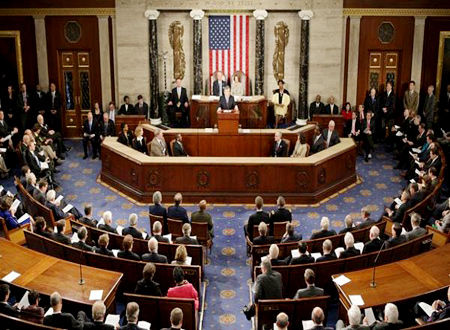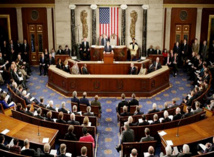The strikes have been conducted since Friday at the request of the Iraqi government, according to Hayden. Backed by the US warplanes, Iraqi Kurdish fighters retook Mosul dam earlier Sunday.
It marked the biggest prize yet clawed back from Islamic State militants since they launched a major offensive in northern Iraq in early June.
"On the evening of August 15, 2014, US military forces commenced targeted airstrike operations in Iraq," Obama said in his letter to House Speaker John Boehner and the Senate's number two Patrick Leahy.
"These military operations will be limited in their scope and duration as necessary to support the Iraqi forces in their efforts to retake and establish control of this critical infrastructure site."
Highlighting the stakes at hand, Obama noted that "the failure of the Mosul dam could threaten the lives of large numbers of civilians, endanger US personnel and facilities, including the US Embassy in Baghdad, and prevent the Iraqi government from providing critical services to the Iraqi populace."
"I have directed these actions, which are in the national security and foreign policy interests of the United States, pursuant to my constitutional authority to conduct US foreign relations and as commander in chief and chief executive," Obama wrote.
Earlier, US Central Command said its forces conducted 14 airstrikes, damaging or destroying 10 armed vehicles, seven Humvees, two armored personnel carriers and one checkpoint operated by the militants.
A subsequent series of strikes by fighter and attack aircraft destroyed three IS armed vehicles, a vehicle-mounted anti-aircraft artillery gun, a checkpoint and an emplacement for an improvised explosive device.
Another nine US airstrikes were conducted Saturday.
Since the War Powers Resolution was enacted in 1973, a succession of American presidents have unilaterally initiated military strikes or land invasions on numerous occasions without Congressional approval, invoking their constitutional authority as commander in chief.
-----------------------------------------------------------------------------------------------------
It marked the biggest prize yet clawed back from Islamic State militants since they launched a major offensive in northern Iraq in early June.
"On the evening of August 15, 2014, US military forces commenced targeted airstrike operations in Iraq," Obama said in his letter to House Speaker John Boehner and the Senate's number two Patrick Leahy.
"These military operations will be limited in their scope and duration as necessary to support the Iraqi forces in their efforts to retake and establish control of this critical infrastructure site."
Highlighting the stakes at hand, Obama noted that "the failure of the Mosul dam could threaten the lives of large numbers of civilians, endanger US personnel and facilities, including the US Embassy in Baghdad, and prevent the Iraqi government from providing critical services to the Iraqi populace."
"I have directed these actions, which are in the national security and foreign policy interests of the United States, pursuant to my constitutional authority to conduct US foreign relations and as commander in chief and chief executive," Obama wrote.
Earlier, US Central Command said its forces conducted 14 airstrikes, damaging or destroying 10 armed vehicles, seven Humvees, two armored personnel carriers and one checkpoint operated by the militants.
A subsequent series of strikes by fighter and attack aircraft destroyed three IS armed vehicles, a vehicle-mounted anti-aircraft artillery gun, a checkpoint and an emplacement for an improvised explosive device.
Another nine US airstrikes were conducted Saturday.
Since the War Powers Resolution was enacted in 1973, a succession of American presidents have unilaterally initiated military strikes or land invasions on numerous occasions without Congressional approval, invoking their constitutional authority as commander in chief.
-----------------------------------------------------------------------------------------------------









 Home
Home Politics
Politics











